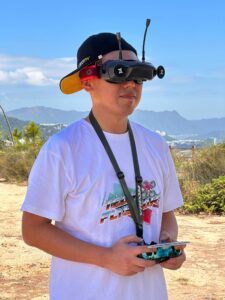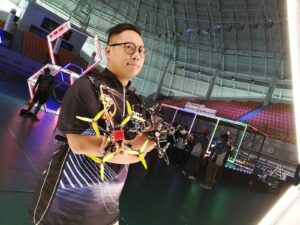| Date | Day | Time | Duration |
| 26 Aug | Monday | 0900-17:00 ICT/GMT+7 | 8 Hours |
| 27 Aug | Tuesday | 0900-17:00 ICT/GMT+7 | 8 Hours |
| 28 Aug | Wednesday | 0900-17:00 ICT/GMT+7 | 8 Hours |
In this couse, we will introduce security risk and design considerations in designing and implementing drone systems as well as operating drones in a safe and secure way. It covers technical details from hardware to software, from attack to defense related to drone security. Participants will get first-hand experience in attacking drones via hardware disassembly, signaling, software programming, forensics. At the same time, participants will attempt to design their own secure drone control system architecture, implement their own drone control protocols via embedded and client programming supported by open programming platform with commodity hardware.
It is an unique and never launches in the market. The course focus on the whole architecture of drone with its attack potential from internal to external, including kernel, application and signal communication.

Janet is an Ag. Lecturer of Hong Kong Institute of Vocational Education (Chai Wan), mainstream Cybersecurity to deliver networking, system administration, and cybersecurity knowledge, supervise the Final Year Projects of Higher Diploma in Cybersecurity, including developing a cybersecurity lab by using GNS3 for building the network and IDS Security Onion for analysing malicious traffics, developing the web interfaces for integrated penetration tools, and experienced in Cyberbit platform, a renowned cybersecurity training and simulation solution, with hands-on training scenarios simulating a variety of cyber-attacks, gaining practical knowledge of threat detection, incident response, and vulnerability management.

Cato Yuen is a drone pilot with over 10 years of experience, he has been building his own multirotor drones and providing unmanned aerial services to local government and corporations.
He founded Flysmart Digi in **2015**, bringing multirotor components to individuals, works with various manufacturers in product development and testing for upcoming multirotor technologies. In recent years Cato also organizes events with local schools and organizations to provide training and experience opportunities for interested parties.

Sky Yeung aka DNTSky is the chairman of DNT FPV Drone Association Hong Kong, China. He is also:
– Speaker of Black Hat MEA 2023
– Specialist on drone education and tech development with both defensive and offensive security
– Delivered speeches in over 150+ primary, secondary and ngo education system in Hong Kong
– STEM consultant of 16+ countries under organization from in South Korea IDSC.
– Drone Pilot Trainer and Accessor in Hong Kong and China ASFC Jude
– Organizer of Tier 1 Chapter in Asia of MultiGP International Race

Alan has ample experience handling complex dispute and litigation cases, having served as forensic examiner, e-discovery specialist, and expert witness testified before courts of laws, at multiple top-tier multinational forensic firms.
As an digital forensics and incident response expert Alan is well respected for his deep understanding of technologies, acquired through years of diverse background in network & infrastructure security, IT audit & penetration testing, and security solution architecture & design, across nearly two decades of deeply technical engagements.
He has presented at PacSec Tokyo (2013), DEFCON (2012), and HTCIA Asia-Pacific Conference (2012). Alan is a holder of CFE, OSCE3 (OSEP, OSWE, OSED), OSCP, OSDA, OSWA, EnCE, CISA, and GREM.
